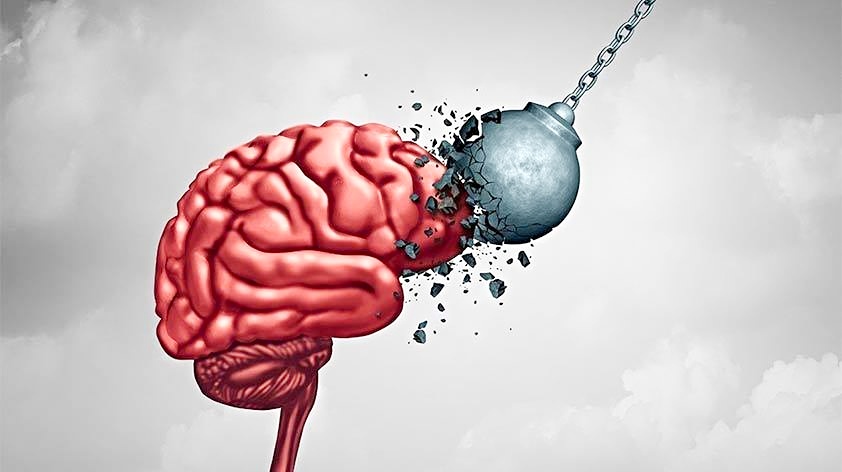
Ever wondered how the best CrossFit athletes consistently win events, why the best strikers always seem to score and win the match, or how the SAS elite make it through their gruelling selection process? Even though they all share similar skill sets (and sometimes less so) with their peers, it is, in fact, their psychological strengths that separate them from the herd. Mental toughness is a psychological tool that opens the locked door to success and is actually one of the most important attributes that lead to successful performance.
However, it is a term that is widely overused, misunderstood, and under-researched. Mental toughness is simply defined as the natural and developed psychological edge that enables you to be more consistent and better than your opponents in remaining determined, focused, confident, and in control under pressure. Don’t lock yourself out of your own success, open the door with Mental Toughness: 3 Key Insights to Change Your Life – FOR GOOD!
1. Key Attributes of Mental Toughness
Mental toughness is built from many psychological components which is why it varies so much, not just from person to person, but from moment to moment for each individual. Firstly, you need self-belief in your own capabilities that you have what’s required to achieve your goals and perform better than your opponents. This ties in with having high levels of motivation to succeed.
Bear in mind that if you don’t remain fully focused on the task at hand and immersed in the moment, you can easily become distracted by external forces and your performance will inevitably suffer. Mental toughness is essential to thrive under pressure. Elite athletes will naturally experience greater pressure than you or I, with high-value contracts and prizes to strive for and protect. And all of this whilst they’re under the spotlight of thousands of fans in the stadium and millions more watching on TV.
We’re now in an interesting period in coronavirus-influenced history where top performers are playing in empty stadiums and you may have noticed some of the ‘lesser’ players now stealing the limelight, with some of the bigger stars struggling to reach the heights they’re used to.
Whether in sport or a professional setting, we’re all going to experience good and bad performances, but the mentally strong don’t let these fluctuations affect them long-term. Nor do they allow emotional or physical pain to get in the way. Just watch some of the gruelling events at the CrossFit Games to understand, or ask the militant personnel who have made it through “Hell Week” – the very substance that CrossFit is built upon!
2. How is this Toughness Developed?
So is mental toughness down to your personality or mindset? Well, given the fact that our personality traits are influenced by genetic, environmental and free-will choice factors (watch “Three Identical Strangers” on Amazon to understand this)
mental toughness is a mixture of all three, and it’s important to note that it is constantly in the process of being developed.
You have the power to influence your mental toughness to achieve more success, but be aware that this is a process that requires time and protracted, focused hard work.
Our foundations are built by our parents, upbringing and we add our own character values into the mix. Within sport, coaches play a significant role. In very simple terms, by experiencing more stressful situational triggers during childhood, (ie. such as parents divorcing etc) we naturally develop coping strategies that we can then leverage, anchor and adapt to use in stressful sporting situations.
3. What Can You Do to Gain Mental Toughness Now?
If you’ve read my other articles, you’ll know about certain psychological tools. They’re all strategies used to enhance the individual components of mental toughness and by regularly practising them together, you can build yourself an indestructible fortress for your mind to flourish in any stressful situation. Such psychological tools include self-talk, visualization, pre-game routine habits, meditation, goal-setting, along with breathing and relaxation exercises.
I have also highlighted the importance of anxiety for personal development, and mental toughness is the very thing it directly affects. Note how you deal with situations of fight or flight. By choosing the fight (mentally fighting of course, we’re not talking about physically fighting on every occasion!) option more often than not, and experiencing the anxiety accompanying it, we ratchet up and enhance our mental toughness every single time.
To be successful in anything you need to take advantage of both external motives (ie. encouragement from the crowd) and internal motives (ie. to feel a great sense of achievement). When the going gets tough you should shift your focus to your goals and remember the reasons why you’re putting yourself through the physical and mental pain (aided by visualization), thus recollecting your ideals and values and reinforcing a compelling, exciting positive mindset for yourself. Just consider for a moment, have you ever seen a depressed person be habitually excited (or vice versa)?
Take Away Points
In summary, mental toughness is molded by your childhood experiences, especially how you model your parents (or not as the case may be), and then it’s continuously developed through the choices you make throughout your life. Never think that mental toughness is merely genetic, because the mind has no genetics, in fact the mind creates your genetics. The mind, your mind is infinite…and no one can ever tell you that it’s not. No school or university, no doctor, no teacher, no parent, no social influences nor well-meaning friends can delimit you. Just decide who and what you want to be, stick to this idea like glue, and watch the magic of the mind do its thing.
It’s never too late to make a change and develop this mental skill, but be aware, it’s a marathon, not a sprint. Mental toughness literally gives life to the phrase ‘no pain, no gain’, and you should improve it one step at a time. Just like when it comes building up your running miles to a marathon or the amount of weight you can handle in the gym (or at home these days!) when training your muscles. Turn negative stress into positive energy through the process of thought conversion.










